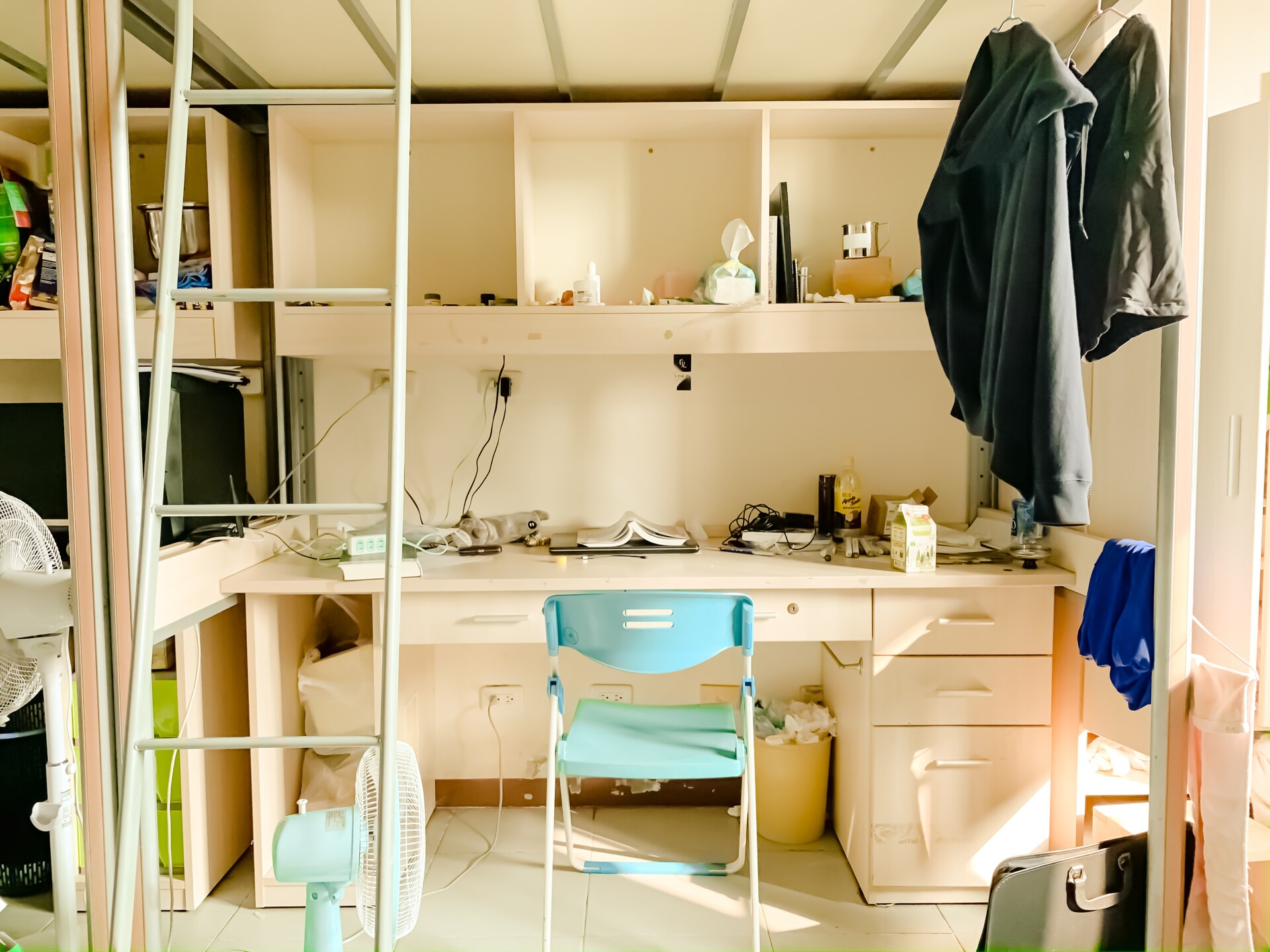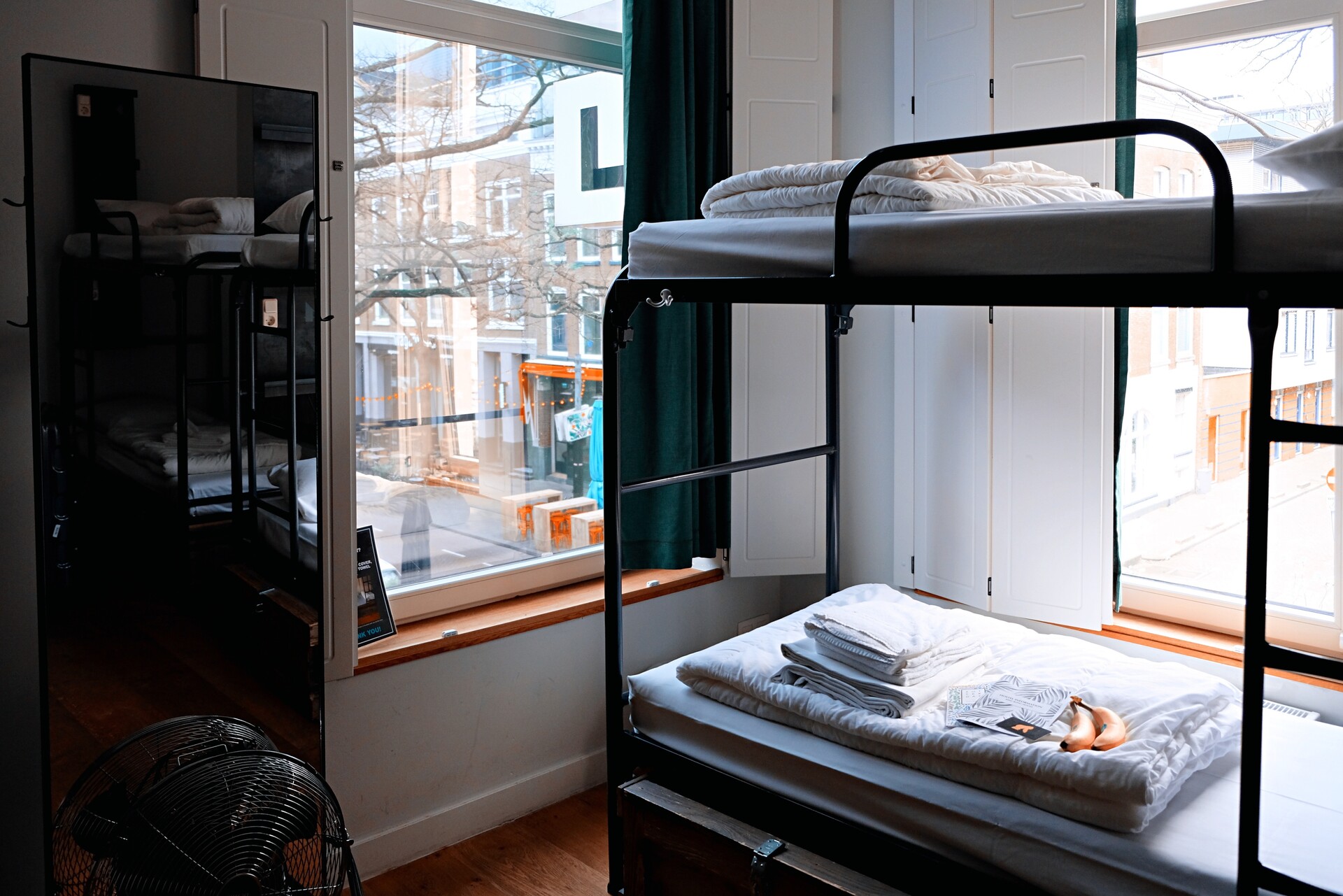How to choose a university residence? Find the perfect student housing
Before throwing ourselves into the evaluation of advantages and disadvantages of living in a student housing, we firstly need an understanding of the different options. While the plethora of types and styles of accommodation is great, generally all can be classified as university dorms (also known as student housing), major institutes or shared flats.
Some of you might ask yourself: but are university housing and a college not exactly the same? There are people that use the two terms for the same thing, but it is more convenient to distinguish between both. They actually correspond to two types of very, very different student accommodation. We begin with university housing.

University Housing
You could consider university housing as a kind of hotel for students. You sleep there, and you can eat there (the norm is to have full board). To wash your clothes, you are going to have a room of washing machines, or better yet a laundry service where you leave a bag of dirty clothing, and they give you back your clothes, clean and ironed.
The quality of the rooms and the facilities can range from royal palace to shack house, but the primary goal of every single one of them is the same: they keep you dry and warm when it rains. Likewise, they allow you to eat, and offer services to clean your clothes and bathroom (fundamental, especially if you share your room!).
Major Institutes
A major institute is like university housing, but with one essential difference. Whilst the typical student housing is restricted to offer you a place to live, study, eat and watch the telly, a major institute is just as concerned with providing you “a cultural and, very frequently, ethical training that compliments the knowledge acquired during the degree programme”, to use a common phrase.
If you are thinking “ugh, what a joke!” let me translate “cultural and moral learning” into more preferable terms. I am talking about sporting competitions among institutes, cinema viewings, theatre performances, art and music competitions, known speakers, actions of solidarity, among many more… And all are organised by, directed by, and participated in by the exact same students. This is YOU!
Every single one of these activities with your classmates and, aside from being really cool also create a group. If you talk with students that live or have lived in a major institution (and I advise that you do), you will notice that many of them think of their major institution as they would their mother. Some may even cry when reflecting on their time there. I am not kidding. Well, maybe not.
Now that I have explained the great difference between university housing and major institutions, you should know that it’s not for forever, and in every circumstance the grass looks greener on the other side. There are university houses with features of a major institute, and major institutes that mess around with facilities or have no organisational impetus and can seem like a university house. But, in general, each one is quite different from the other.
At this point, even if you were clear, on principle, where you would prefer to live, to serve as an example, in a residence, you still have to decide which one. “Does it matter?” Wrong response. There are not two residences, even less so two major institutes, that are the same. If you want to make the most of your university years – and you deserve to – you will have to put a lot of energy into studying the university houses and major institutions to identify where you are going to be able to be happiest.
If your university is small or it has an isolated campus, it is possible that you do not have many options. However, in Alicante, I recommend you the university residence RECTOR 3, in the University of Alicante. On the other hand, if you choose a big university in a large city, you could have such a vast variety of accommodations to choose from that you don not even know where to begin. The Complutense University of Madrid, for example, has more than forty affiliated major institutions. But when you begin to look more closely at them, you will discover that every one of them is different, and certain ones will be more suited to you than others.
Here there is some criteria that you might want to take into consideration. Every person has their priorities, and surely you are going to have certain criteria that is not included. Make a list of your criteria and keep it in mind whilst studying the different options.
Mixed or male/female accommodation?
Many university houses and major institutions can be: mixed, male or female. Not one of them is better or worse, simply different. And, if you think that those of only one sex are dull in comparison to those that are mixed, you have confused yourself. Talk to people that live there, and you will see.

The rules of the game
Different houses are going to have different rules, designed to facilitate coexistence and ensure the security of the residents. Yes, friend, there are rules. But we are free spirits, and you have the freedom to choose the place whose rules you agree with more (or, if you are a fatalist, those that annoy you less). What kind of rules are we talking about? Some examples:
- Loud noises. Some houses and major institutions have silent hours. They can affect you if you like to play music out loud, or even play the trumpet, or dance the flamenco.
- Guests. There could be rules that limit who can enter the building let alone the rooms, and at what time. There is a bit of everything, from buildings where absolutely nobody can enter apart from the people who live there, to places where anybody you like can pass through at whatever time of day, or even night.
- Curfew. Some places go a step further, and limit when you can enter and leave. Do you prefer freedom over when you come and go, or maybe you prefer the tranquillity of knowing your flatmate will never wake you up at thee in the morning, coming back from a party?
- Your things. Some places put restrictions on the things you can have in your room. There is no doubt that those firecrackers should be left at home. But that electric heater? Your poster of El Fary?
- Do you smoke or not? If you do not smoke, you might prefer accommodation where absolutely nobody smokes.
- The facilities. Do you like them? The bathrooms are en suite or shared? Is there internet in every room? What sports facilities are there?
- Life. If it is a major institute, the ‘group’ factor will mark the difference between one room more, and an experience that might change your life. Does it inspire tears of joy, or yawns of indifference? Are the residents united or aloof? The best way to find out is to talk with those that live there.
Shared flat or student housing?
If you are immersed in the cosmos of student accommodation, living in a shared flat is like living on the border between university and the dreaded ‘real life’. Among the big differences, in a flat, nobody lays down rules. Or rather, the rules are those that you put on yourself, and those that you agree with your flatmates.
It might seem cool, but it is also an enormous responsibility. Absolutely nobody will tell you when you have to be home, but absolutely nobody will cook for you. And it is never, in no circumstance, simple to be satisfied with your flatmates. In a flat there are considerably more things that can make you uncomfortable that in a room in student accommodation.
One of the things that tend to cause the most tension is cleaning. Who will clean the toilet, and how often (recommendation: at least once a week, whoever you are!)? Do the dirty plates have to be washed straight away, or can you leave them for ‘tomorrow’? Another discussion point that springs up frequently is money. In a flat there are shared expenses. Aside from rent, there is heating, broadband, cleaning products and more. You only need one person to not pay on time, to contribute less or to consume more than the others for there to be anger.
Saying this, if it were impossible to live happily in a shared flat then absolutely nobody would do it. Yes, it does require enormous responsibility and capacity to compromise on your part, and, likewise, on the part of your flatmates. You will learn a lot about cohabiting, maybe more than in student housing, and the independence that it can give you can be really gratifying. But I am going to give you my opinion. If you can, especially in first year, live in a student house or major institution.
You will realise that university life goes way beyond classes. An essential part that you will take with you after your three, four or five years in university are the friendships that you have made, and the experiences that you have lived outside of the classroom. The first year is when you establish some of your best friendships. They may not be another moment in your life where you can meet so many new people of your age, all looking to make new friends.
In student housing, you are put into the middle of this hub of people, ideas and energy. Not to say that living in a flat mean you’re on the outside, but you do lose this immediate and incessant contact.

How to find the accommodation of your dreams?
Starting now to think about the peculiarities that you would have in your ideal accommodation. At the same time that you look into different universities, study the accommodation that they have around them. Ask for information about the university, and similarly ask if they can give you information about their accommodation. Very often, there are going to be private student housing that you can consider.
If you can visit the university, take advantage of talking with students and find out their thoughts about the different accommodation options. Keep an open mind. Maybe a student will tell you about an experience, or even give you some advice, that will make you reconsider some of your criteria.
Whatever your preference, living in a flat, student house or major institution, my best advice during the search is the same. Look in advance! In the third month of the year, if you can, but whatever the case, before you take the university entrance exam. Every student house and major institution has limited space, and you won’t be the only one to find your ideal place, only to then find it full. The best places fill up quickly, and if you wait too long, you will end up in an expensive or miserable flat, or maybe even in a flat that’s both of those things.
Where you live will have a big impact on your first-year experience at university. Dedicate precious time to make a good choice, and you will be grateful once classes start.
Photo gallery
Content available in other languages
Want to have your own Erasmus blog?
If you are experiencing living abroad, you're an avid traveller or want to promote the city where you live... create your own blog and share your adventures!
I want to create my Erasmus blog! →


















Comments (0 comments)